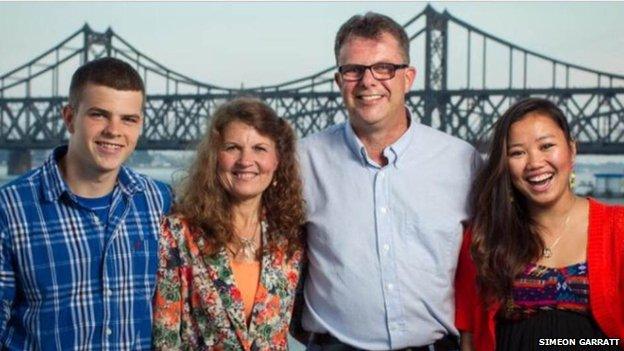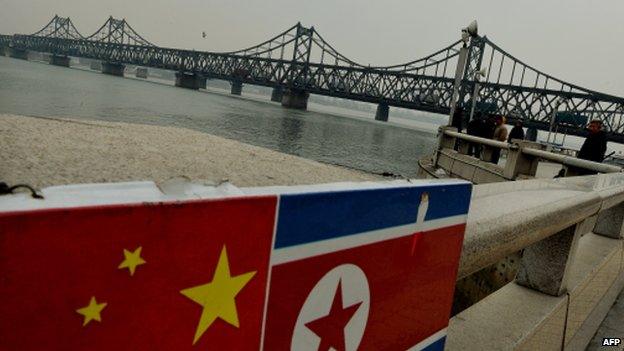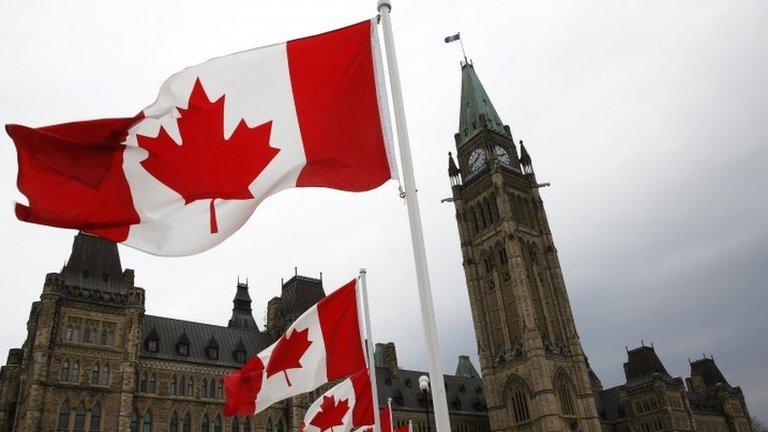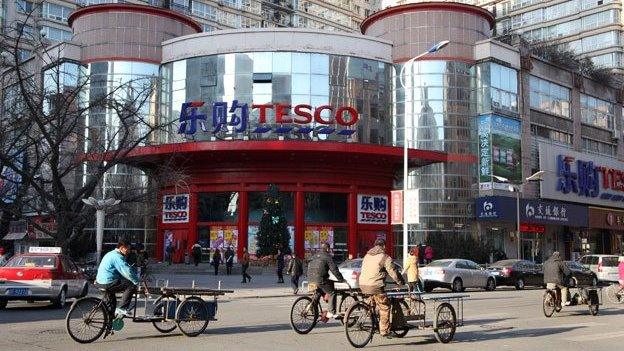China 'investigating Canada couple over state secrets'
- Published
The BBC's Celia Hatton says that Kevin and Julia Garratt's son Simeon describes them as "normal, kind, loving people"
Chinese authorities are investigating a Canadian couple suspected of stealing state secrets about national defence and the military, state media say.
Xinhua news agency named the suspects as Kevin and Julia Garratt. The couple run a coffee shop in Dandong just across the border from North Korea.
Xinhua said Dandong's State Security Bureau was investigating the case.
But the couple's son Simeon told the BBC the charges were "absurd" and made "absolutely no sense".
The couple taught in southern China for several years and then moved to Dandong, where they opened Peter's Coffee House.
Dandong is the main China-North Korea border crossing and trade link.
The Xinhua report did not say whether the couple had been detained.
Simeon Garratt, 27, told the BBC's Celia Hatton in Beijing that his parents had been uncontactable since Monday night.
"They were going to dinner with a couple of friends, and sometime between dinner and later that night, their phones were turned off and no one has really heard from them (since)," he said.

Julia and Kevin Garratt (centre) with their children Peter and Hannah. Their second son Simeon is not pictured

The couple live in Dandong, at the main China-North Korea border
Mr Garratt called the charges "a joke", adding: "I thought it was absurd. It makes absolutely no sense."
He said his parents are "pretty regular people (who) don't have any ties to military or even governments or even anything like that".
Besides running the cafe, the couple regularly held community events for people to practise their English and helped people to get in touch with North Korea tour organisers, said Mr Garratt.
"Because they have been into North Korea a number of times, they just know the ropes and they're willing to help some friends who are going into North Korea," he said.
His parents speak both English and Mandarin and have developed a relationship with tour organisers.
"That's pretty much the extent of it. There's no business they operate that sends people into North Korea or anything like that," said Mr Garratt, who is a real estate agent living in Vancouver.

Celia Hatton, BBC News, Beijing
What qualifies as a "state secret" in China? The answer to that is a secret too.
The Chinese government's "state secrets" law is notoriously vague. Trials involving state secrets are conducted behind closed doors.
In most cases, Chinese citizens are accused of leaking state secrets to outsiders. It is extremely rare for foreigners to be accused of stealing and trafficking such sensitive information.
In 2009, an American geologist was also convicted of trading in state secrets after he attempted to purchase information about the Chinese oil industry.
One year later, an Australian was sentenced to 10 years in prison for stealing classified corporate information on behalf of the Australian mining firm, Rio Tinto.
The Chinese Ministry of Foreign Affairs says the Canadians, Kevin and Julia Garratt, "are suspected of collecting and stealing intelligence… related to Chinese military targets and important Chinese national defence science research programs."
The Garratts ran a popular coffee shop near the North Korean border and had strong ties within the Christian missionary community. However, those activities are not illegal.
It will be difficult for those who knew the couple best to defend their relatives without understanding the sensitive information they're suspected of stealing.

Canada's embassy in Beijing told Reuters news agency it was aware of the reports and stood "ready to provide assistance as required".
Late last month, Canada announced that a top government research organisation had been struck by Chinese "state-sponsored" hackers.
The Chinese embassy in Ottawa dismissed the report as a "groundless allegation".
- Published29 July 2014

- Published22 December 2013
